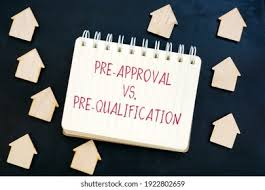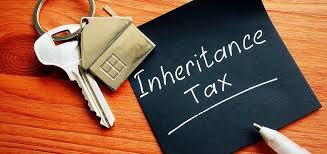Now Reading: 10 Mortgage Secrets Your Broker Wishes You Knew Earlier
-
01
10 Mortgage Secrets Your Broker Wishes You Knew Earlier
10 Mortgage Secrets Your Broker Wishes You Knew Earlier

Buying a home is one of the biggest financial decisions most people will ever make. Yet, many buyers walk into the process without knowing key details that could save them time, stress, and money. Mortgage brokers—who deal with loans every day—often see the same mistakes made over and over again.
We spoke to experienced mortgage professionals to uncover what they wish every buyer knew before applying for a home loan. Whether you’re a first-time buyer or upgrading to your dream home, this guide will help you get ahead of the game.
1. Your Credit Score Isn’t Just a Number—It’s Power

Most buyers know credit scores are important, but few understand how much impact they have on the kind of mortgage you get.
“A difference of even 20 points can change your interest rate,” says Sarah Thomas, a mortgage broker with over 12 years of experience. “That could cost you thousands over the life of the loan.”
What You Should Do:
- Check your credit score at least 6 months before buying.
- Dispute any errors on your credit report.
- Avoid big purchases or new loans before applying for a mortgage.
2. Pre-Approval and Pre-Qualification Are Not the Same

Many buyers think getting “pre-qualified” means they’re ready to shop for a home. But mortgage brokers say there’s a big difference between pre-qualification and pre-approval.
“Pre-qualification is a rough estimate based on self-reported info,” says John Patel, a mortgage advisor. “Pre-approval means a lender has verified your finances and is more serious.”
Why It Matters:
A pre-approval letter can make you a stronger buyer in the eyes of sellers. It shows you’re not just browsing—you’re ready to buy.
3. A Lower Interest Rate Doesn’t Always Mean a Better Deal

Everyone wants the lowest rate possible, but brokers caution buyers to look at the full picture. A super-low rate might come with high fees or points that increase your upfront costs.
“Ask about the APR, not just the interest rate,” says Thomas. “APR includes fees and gives a clearer idea of the real cost.”
Also, compare closing costs and check for any hidden charges.
4. You Don’t Need a 20% Down Payment
Many first-time buyers wrongly believe they can’t buy a home without a large down payment. While a 20% down payment helps you avoid private mortgage insurance (PMI), it’s not required.
“There are programs that allow as little as 3% down,” Patel explains. “And veterans can use VA loans with 0% down.”
Bonus Tip: If you do put down less than 20%, factor PMI into your monthly payments.
5. Shopping Around for a Mortgage Can Save You Thousands
Most buyers spend weeks comparing home listings—but accept the first mortgage offer they get. Mortgage brokers say that’s a big mistake.
“Lenders offer different rates, terms, and fees,” says Thomas. “Even a small difference can save you tens of thousands over time.”
What You Can Do:
- Compare quotes from at least 3 lenders.
- Ask your mortgage broker to shop rates on your behalf.
- Use online calculators to estimate long-term costs.
6. There Are More Loan Options Than You Think
Many buyers assume a standard 30-year fixed mortgage is the only route. But depending on your situation, there may be better options.
“There’s no one-size-fits-all loan,” says Patel. “Adjustable-rate mortgages, FHA loans, USDA loans—each has pros and cons.”
Talk to your broker about your long-term goals, income, and lifestyle. They can help match you to the right product.
7. Your Job and Income Stability Matter More Than You Realize
Lenders don’t just look at your salary—they want to see consistent income. Frequent job changes, especially right before applying, can hurt your chances.
“Even if you’re earning more now, lenders want to see a stable track record,” explains Thomas.
Pro Tip: If you’re self-employed or a freelancer, be prepared to show at least two years of tax returns and business income.
8. Getting Pre-Approved Doesn’t Guarantee the Loan
Even after pre-approval, the loan can still fall through. Common reasons include:
- New debt (like buying a car)
- Changes in your job or income
- Major changes to your credit report
“Until you close, your financial life should stay as steady as possible,” says Patel.
Avoid big purchases, and don’t open new credit cards until after the closing is final.
9. Brokers Work for You—So Ask Questions
Many buyers feel nervous or overwhelmed when talking to a mortgage broker. But remember, they work for you—not the lender.
“No question is too small,” says Thomas. “We want to help buyers understand every step.”
Be honest about your financial goals and concerns. The more your broker knows, the better they can help you.
10. Closing Costs Can Be a Shock—Plan Ahead
Many buyers focus on the down payment and forget about closing costs, which can range from 2% to 5% of the home’s price.
“It’s one of the biggest surprises for first-time buyers,” says Patel.
These costs include:
- Appraisal fees
- Loan origination fees
- Title insurance
- Taxes and prepaid interest
Ask your broker for a Loan Estimate early in the process so you know what to expect.
Final Thoughts
Buying a home is exciting—but it’s also complicated. Mortgage brokers are there to guide you through the maze, but you’ll make better choices if you come prepared. From understanding your credit score to choosing the right loan, these tips can help you avoid mistakes and get a better deal.
The more you know, the more confident you’ll feel—and the smoother your path to homeownership will be.
Read More:- Shobha Realty Launches Its Most Luxurious Project Yet—Full Details Inside 2025





















